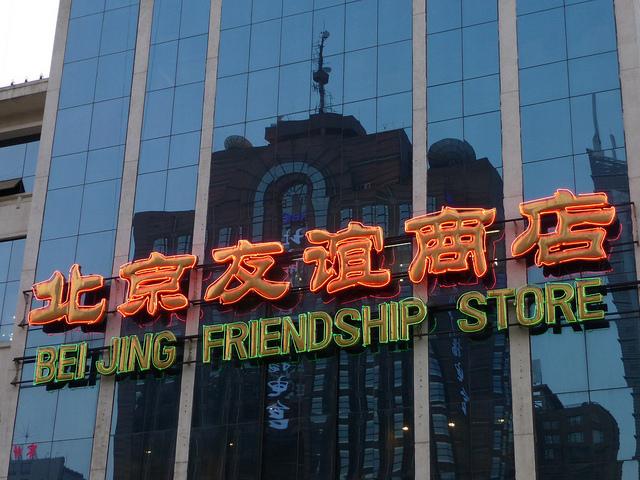
‘President Putin… hailed the role of Vietnam in Southeast Asia and confirmed that Vietnam is one of the external priorities of Russia in the Asian-Pacific region… Russia also supports ASEAN and China to jointly build a Code of Conduct in the East Sea (COC)’. So said Vietnam’s Thanh Nien News when the country’s new Prime Minister Nguyen Xuan Phuc made his first overseas visit as PM to Sochi in Russia.
The story highlighted the traditional friendship of the two nations, however the joint Russia–China patrols in the South China Sea beginning Monday and President Putin’s comments at the G20 might dampen such sentiments. He sided with China over the Hague tribunal ruling, taking the Chinese view that arbitration must involve both sides. Vietnam hasn’t reacted yet, but it can’t be happy that its first strategic partner has moved away from its previous stance of professed neutrality.
When I wrote about how Russia–China South China Sea patrols might affect Russia–Vietnam relations for The Huffington Post in August, I noted that this potentially destabilising action was being undertaken by Vietnam’s two most important partners, both of which have a comprehensive strategic partnership with Vietnam. The South China Sea’s been a flashpoint in the Vietnam–China relationship for some time, but until now relations with Russia haven’t suffered any setbacks.
Keeping up with Vietnam’s foreign relations takes some doing; the nation values multilateralism and its representatives are often off somewhere or hosting someone. Vietnam pursues relations with all permanent members of the Security Council and has diverse strategic partnerships with many nations, including the Philippines, Italy and Japan. It also works its most important relationships. Vietnam’s defence minister General Ngo Xuan Lich went to China at the end of August, ostensibly to deepen defence ties and to talk about peace and stability in the region (likely of the contested maritime variety).
Vietnam’s just added India to the top tier ‘comprehensive strategic partnership’ list, after an early September visit by Narendra Modi. The Modi visit yielded 12 bilateral agreements and a US$500 million line of defence credit. Vietnam and India’s friendship goes back a way (there’s an Indira Gandhi park in Hanoi, with a very nice lake) and there’s been areas of cooperation for a while, however the recent upgrade seems to signify India’s unease with a growing China.
This expansion of high-level ties comes at a time when they might be useful. The Russia relationship is well regarded, but these days does seem to have a strong rhetorical component to it.
There’s a long history of cooperation in technology and education with Russia, and once there were strong fellow feelings too; people even named their pets for Russia’s Olympic bear, Misha. Of more strategic importance was the Soviets’ long-time use of the deep water port of Cam Ranh Bay. The current areas of cooperation are diverse, including defence (Vietnam’s new subs are Russian kilo-class), oil and gas, tourism, education and nuclear power—but they aren’t especially deep, save defence sales, which will probably remain important despite the lifting of the US embargo. Trade amounts to just US$4 billion annually.
Vietnam is Russia’s only real friend in ASEAN and one of only two in Asia, the other being long-time rival China, although there’s cooperation and a history of friendship with Laos. Russia’s been trying to expand its Asian influence by developing better ties with Cambodia.
Anton Tsvetov, a Moscow-based Southeast Asia scholar worth reading, told me that, ‘Strategically, there is no closer partner for Russia than Vietnam in Southeast Asia, as manifested by the special port call arrangements for Cam Ranh Bay and Vietnam’s FTA with the Eurasian Economic Union’. But he qualified that by suggesting that in reality there’s been no serious interdependence since the 1980s. Trade wise there’s a US$1 billion dairy investment project in Russia from Vietnam’s TH True Milk, which has helped Russia absorb shocks from western sanctions. In other words, there’s a strong enough friendship between Vietnam and Russia, but Hanoi might well be wondering what Russia’s doing with China.
A recent piece from Russia Beyond the Headlines (a Russian version of China Watch and also printed by Fairfax) goes some way to explaining the situation. It notes that Russia’s official position is neutral but it has much to gain should China’s influence in the region grow enough to challenge the US. One military expert and regular RBTH contributor Viktor Litovkin said, ‘The construction of Chinese military infrastructure will provide Russia with protection in the area against USN ships and the Aegis system and SM-3 and Tomahawk missiles’.
The Russia–China non-alliance has annoyed the US already and it’s worth remembering that the first patrols were in the East Sea and designed as a rebuke against Japan. Vietnam’s surely been watching since then and is aware that the US pivot to Asia was always going to create other bedfellows—like Russia and China—even as Chinese aggression has pushed Vietnam closer to the US. It seems Vietnam’s picked a good time to expand its highest-level partnerships with other old friends.